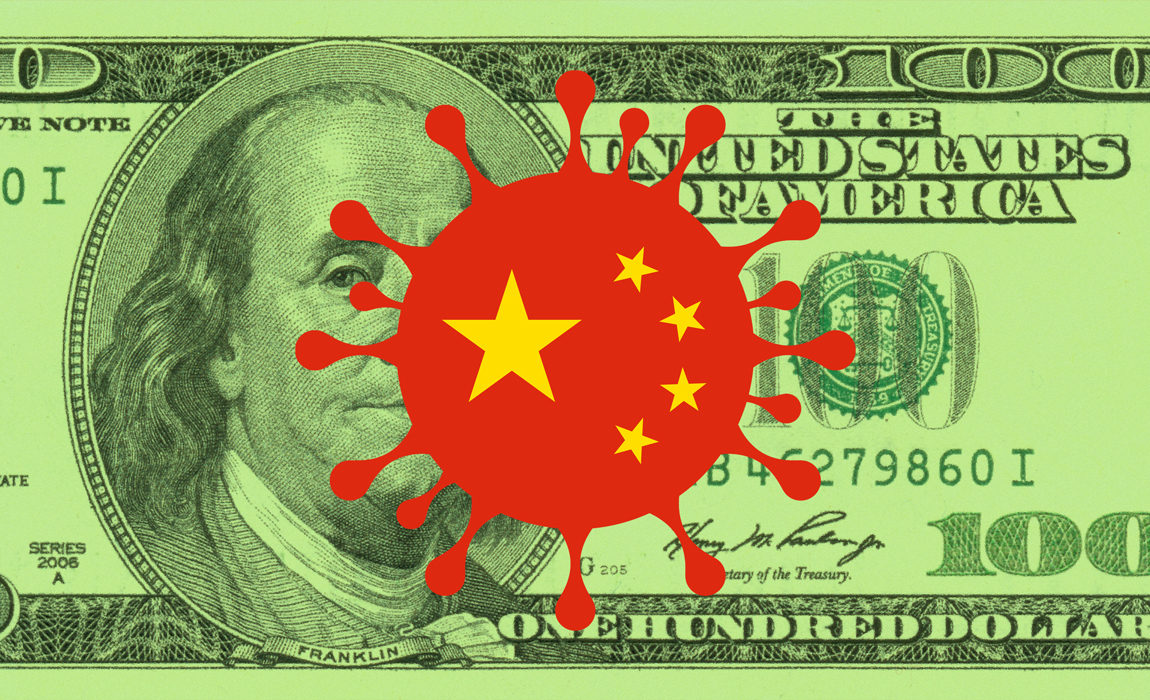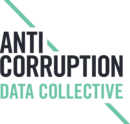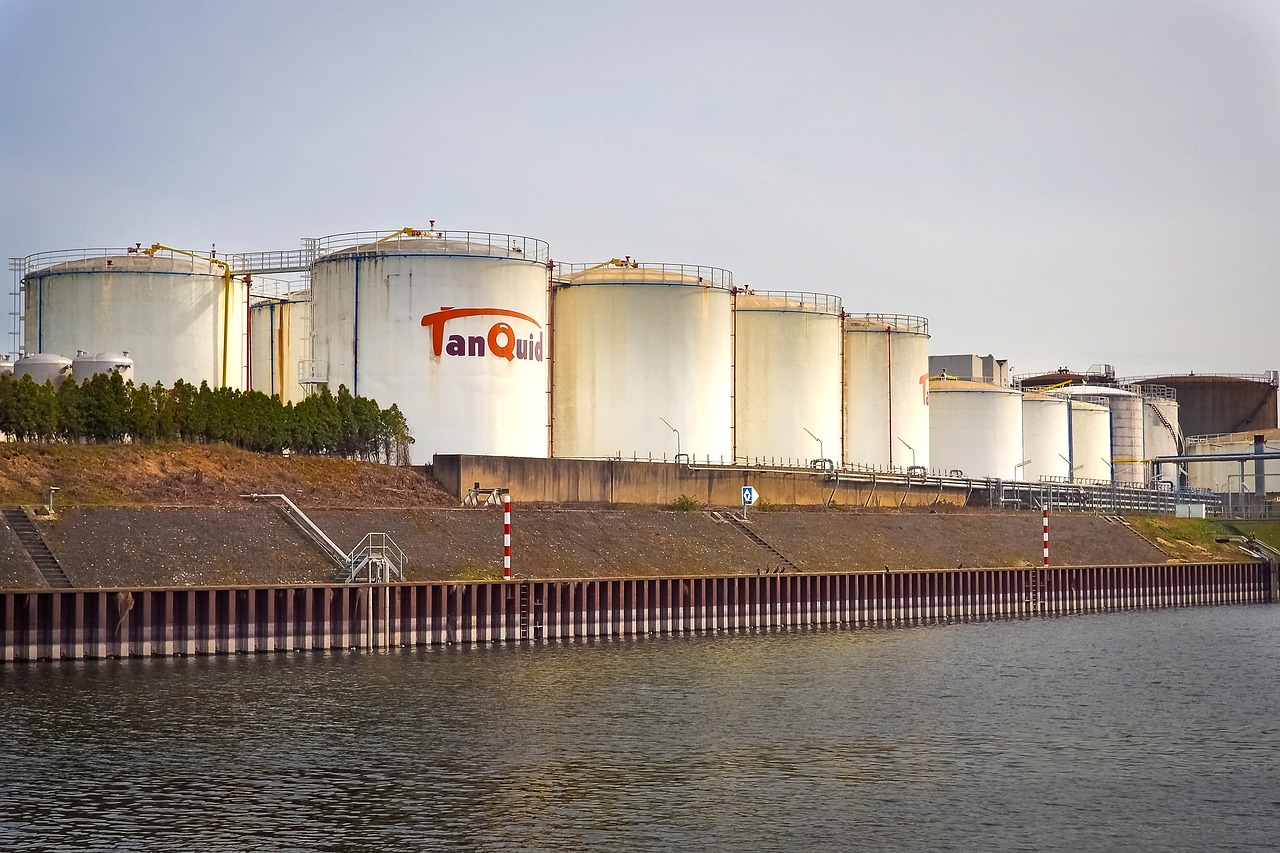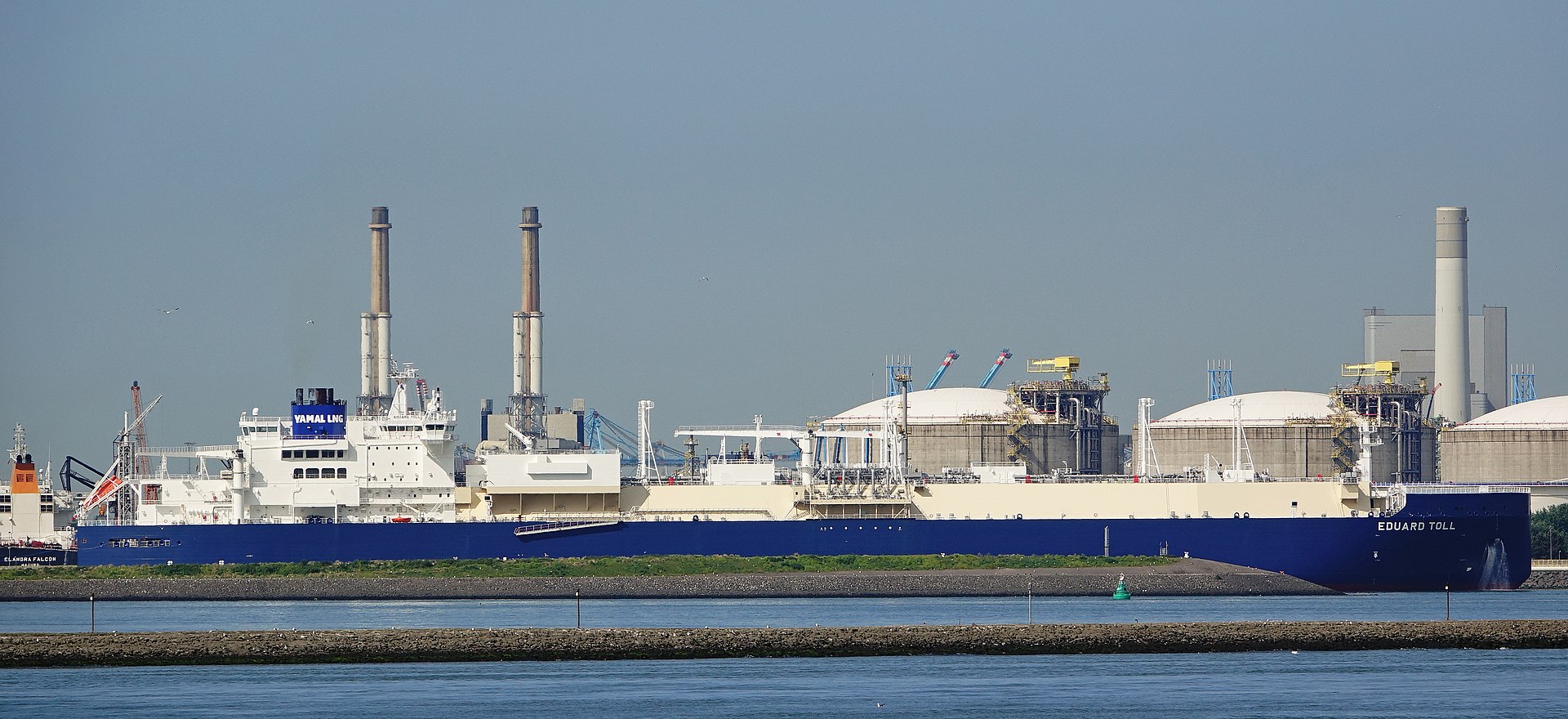

Two tech companies owned by Chinese state-controlled private equity firms received Small Business Administration Paycheck Protection Program loans worth, in total, between $2.4 million and $6 million, according to a review by the Project On Government Oversight (POGO) and the Anti-Corruption Data Collective. The loans distributed through the program, which can be forgiven in full, are meant to help struggling small businesses weather the economic fallout from the coronavirus pandemic.
One of the Chinese state-owned companies was featured in a March 2018 Trump White House report on how China has been acquiring U.S. technological know-how to better compete with the U.S. The administration used the report’s findings to justify tariffs against Chinese imports.
The loans underscore how some of the hundreds of billions of dollars in U.S. taxpayer-backed coronavirus relief loans and spending are heading to companies that Congress and the administration may not have intended to receive the funds. And these revelations about the loans come as Congress considers new legislation that may extend the Paycheck Protection Program. The loans also show how a lack of oversight of the funds may undermine an important Trump administration policy priority that has bipartisan support: stanching China’s efforts to compete technologically with the U.S.
Recently, President Donald Trump claimed credit for getting the United Kingdom to bar Chinese technology company Huawei from its cellular networks and floated the idea of banning TikTok, a Chinese-based short video app. This week, in an escalation of tensions between the nations, the U.S. government shut down China’s consulate in Houston.
Last Friday, Attorney General Bill Barr said, “the People’s Republic of China is now engaged in an economic blitzkrieg—an aggressive, orchestrated, whole-of-government (indeed, whole-of-society) campaign to seize the commanding heights of the global economy and to surpass the United States as the world’s preeminent technological superpower.”
Two tech companies owned by Chinese state-controlled firms obtained Paycheck Protection Program small business loans, worth between $2.4 million and $6 million in total.
As part of that so-called campaign, an arm of a giant Chinese state-owned private equity firm named Beijing E-Town International Industrial Investment and Development purchased Silicon Valley-based Mattson Technology in 2016. It was one of “three major acquisitions of US semiconductor firms since 2014” by Chinese state-owned enterprises, according to the Rhodium Group, a research organization.
The Trump administration scrutinized this deal and others. The 2018 White House report, which was authored by the Office of the U.S. Trade Representative, cited the acquisition to bolster its case that China was seeking to increasingly rival the U.S.’s technological edge through a variety of means, including buying U.S. semiconductor companies.
The White House report quoted from a Beijing E-Town financial document, which said that along with other integrated circuit company purchases, “the Mattson acquisition implemented the [Chinese] national strategy of ‘cultivating strategic emerging industries.’”
Nonetheless, this April, Mattson Technology was approved for a Small Business Administration loan worth between $2 million and $5 million. (Small Business Administration data, made public on July 6, only shows ranges of loan values, rather than their specific value.)
The company, whose headquarters was the setting for the fictional Cyberdyne Systems in the 1991 blockbuster film Terminator 2, reported that the loan helped it keep 207 employees on the payroll.
Beijing E-Town’s website states that its acquisition of Mattson “is the first successful purchase by a Chinese firm of a US integrated circuit equipment company, and it is expected to help promote the development of China’s integrated circuit equipment industry.”
“The company’s products are used by some of the world’s top chip manufacturers,” according to the state-owned firm’s website. “Following its acquisition, Mattson quickly joined China’s integrated circuit industry ecosystem.”
“One reason to not provide help to this firm is that this acquisition never should have been allowed by the Obama administration,” said Robert Atkinson, president of an influential organization called the Information Technology and Innovation Foundation, in remarks to POGO. His group promotes technological innovation.
Another Silicon Valley tech company, Analogix Semiconductor, purchased by another Chinese state-owned private equity firm named Beijing Shanhai Capital Management in a deal completed in 2017, obtained a Paycheck Protection Program loan worth between $350,000 and $1 million. That loan, according to Small Business Administration data, helped protect 21 jobs.Mattson, Analogix, the White House, and the Small Business Administration did not respond to POGO’s requests for comment, but the Small Business Administration previously told POGO that “SBA does not comment on individual borrowers.” In recent testimony before the House Small Business Committee, Treasury Secretary Steven Mnuchin said any extension of the Paycheck Protection Program should be “on a more targeted basis for smaller companies, and those that are especially hard hit.” Mnuchin has previously remarked that it was “questionable” whether some companies should have received loans and that loans worth $2 million or more will be audited, which would include the one obtained by Mattson Technology.
Any extension of the Paycheck Protection Program should be “on a more targeted basis for smaller companies, and those that are especially hard hit.”
TREASURY SECRETARY STEVEN MNUCHIN
The federal government’s Committee on Foreign Investment in the United States (CFIUS) did not block Chinese state-owned firms from buying Mattson and Analogix. But since those deals were finalized, proposed acquisitions of U.S. companies by Chinese firms are being “increasingly scrutinized by the interagency committee, especially in areas seen as relevant to current defense capabilities (semiconductors) or future defense applications (‘emerging critical technologies’),” according to a report by the Rhodium Group and the non-profit National Committee on U.S.-China Relations. In the first two years of the Trump administration, there were 331 CFIUS investigations compared to 145 during the last two years under President Barack Obama.
Atkinson told POGO, “CFIUS should have blocked” Beijing E-Town’s acquisition of Mattson Technology. “You can’t let China buy up our technology assets, especially when U.S. firms cannot buy Chinese firms for the most part.”
POGO and the Anti-Corruption Data Collective, a group of researchers and journalists, identified five other companies that both received loans and are owned by private equity firms where Chinese sovereign wealth funds are investors. Still other companies that received loans are backed by Chinese venture capital firms, some of which are state-controlled. Private equity firms are generally associated with taking a controlling ownership of an established company. A venture capital investor buys a minority share of a new private company, one that is often small, but that has the potential to rapidly grow. Neither type of investment is open to the general public, unlike publicly traded companies that are listed on stock markets where individuals with even small sums of money can buy, share, or trade stocks; they are accessible only to high-net-worth individuals or large, institutional funds.
It’s likely that POGO and the Anti-Corruption Data Collective have only uncovered the tip of the iceberg because it is often challenging to figure out who the real beneficial owners are when private equity and other investment vehicles are involved. “It has been difficult for the rest of the world to track the Made in China effort because its implementation is overseen by an estimated 1,600 government-guided investment funds making investments across thousands of companies in chosen advanced industries,” according to a 2019 analysis by the Peterson Institute of International Economics.
“China’s investment strategy (through venture and private equity investments as well as acquisitions) includes the fundamental technologies which will likely be the sources of innovation for the next several decades,” according to a 2018 Pentagon report. “The U.S. government does not currently monitor or restrict venture investing nor the potential transfer of early-stage technology.”
This week, after Axios reported that a U.S. subsidiary of a Chinese biotech company received a Paycheck Protection Program loan worth between $350,000 and $1 million, the subsidiary returned the loan. The Verge also reported on Chinese state-owned electric vehicle startups obtaining loans.
These cases underscore policy contradictions within the U.S. government. But they also showcase tensions within Atkinson’s organization. The Information Technology and Innovation Foundation, along with others, argued for waiving the Small Business Administration’s affiliation rule in order to enable companies backed by venture capital and other types of financing to obtain small business loans. But that opened up access to loans for companies owned by foreign entities, including several Chinese state-owned firms that the foundation has warned are acquiring U.S. tech companies at a worrying pace.
“The SBA affiliate rule was intended to prevent large firms from establishing closely tied affiliates in order to qualify for federal small business programs, including loans,” wrote Atkinson in an analysis posted on his organization’s website in March. “While well-intentioned, this rule has the unintended consequence of sweeping in many legitimate small businesses, depending on the structure of their equity-capital funding.”
“Given systemic Chinese mercantilism there is a strong argument to be made to exclude Chinese firms from any aid. Particularly if it is a state-owned.”
ROBERT ATKINSON, PRESIDENT OF THE INFORMATION TECHNOLOGY AND INNOVATION FOUNDATION
Atkinson and his organization have also recently raised concerns about the increasing role of Chinese government-backed funding in the global private equity market.
“Given China’s Made in China 2025 plan, it is no exaggeration to suggest that, without aggressive action, the United States may face a world within two decades where U.S. jobs in industries as diverse as semiconductors, computers, biopharmaceuticals, aerospace, Internet, digital media, and automobiles are significantly reduced due to Chinese policies unabashedly targeting domestic and global market share in those industries,” Atkinson said in congressional testimony last year.
Atkinson pointed POGO toward his foundation’s recommendations for upcoming coronavirus relief legislation. The foundation recommended that, “rather than provide forgivable loans only for small firms, Congress should provide very low-interest loans for all firms, regardless of size.” But he told POGO in an email, “given systemic Chinese mercantilism there is a strong argument to be made to exclude Chinese firms from any aid. Particularly if it is a state-owned firm which by and large face limited capital constraints.”
Nearly 4 in 5 Americans view China’s growing technological power as a somewhat serious or very serious problem for the U.S., according to polling by the Pew Research Center this March.
“We need a whole-of-government technology strategy to protect U.S. competitiveness in emerging and dual-use technologies and address the Chinese threat by combating technology transfer from the United States,” Senator Mark Warner (D-VA) said in a statement last year. That whole-of-government approach may need to factor in whether U.S. taxpayer-backed small business loans are inadvertently helping China compete with the U.S., and is an argument for robust oversight of the Paycheck Protection Program.
This article originally appeared on:
www.pogo.org




